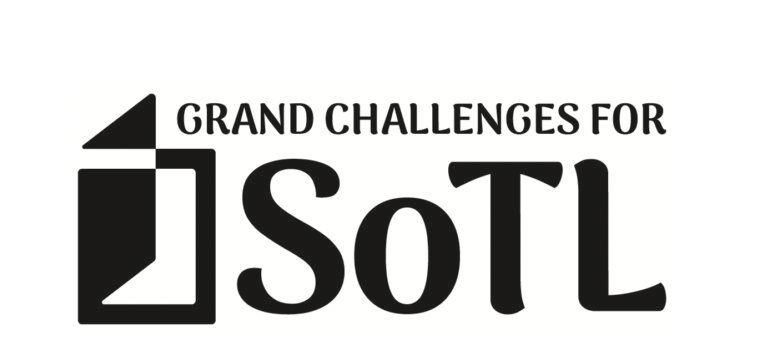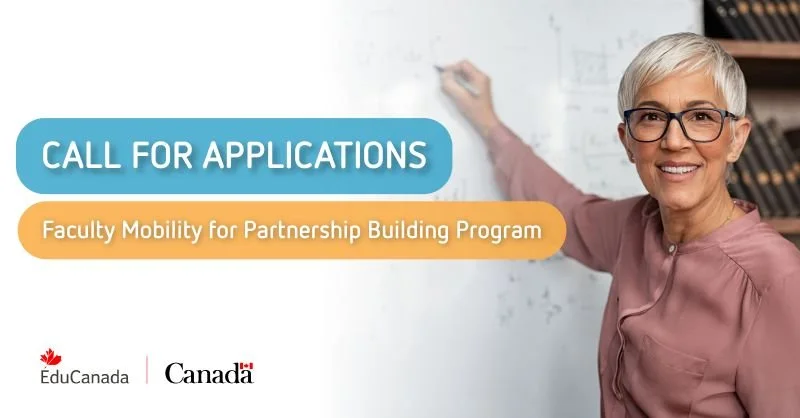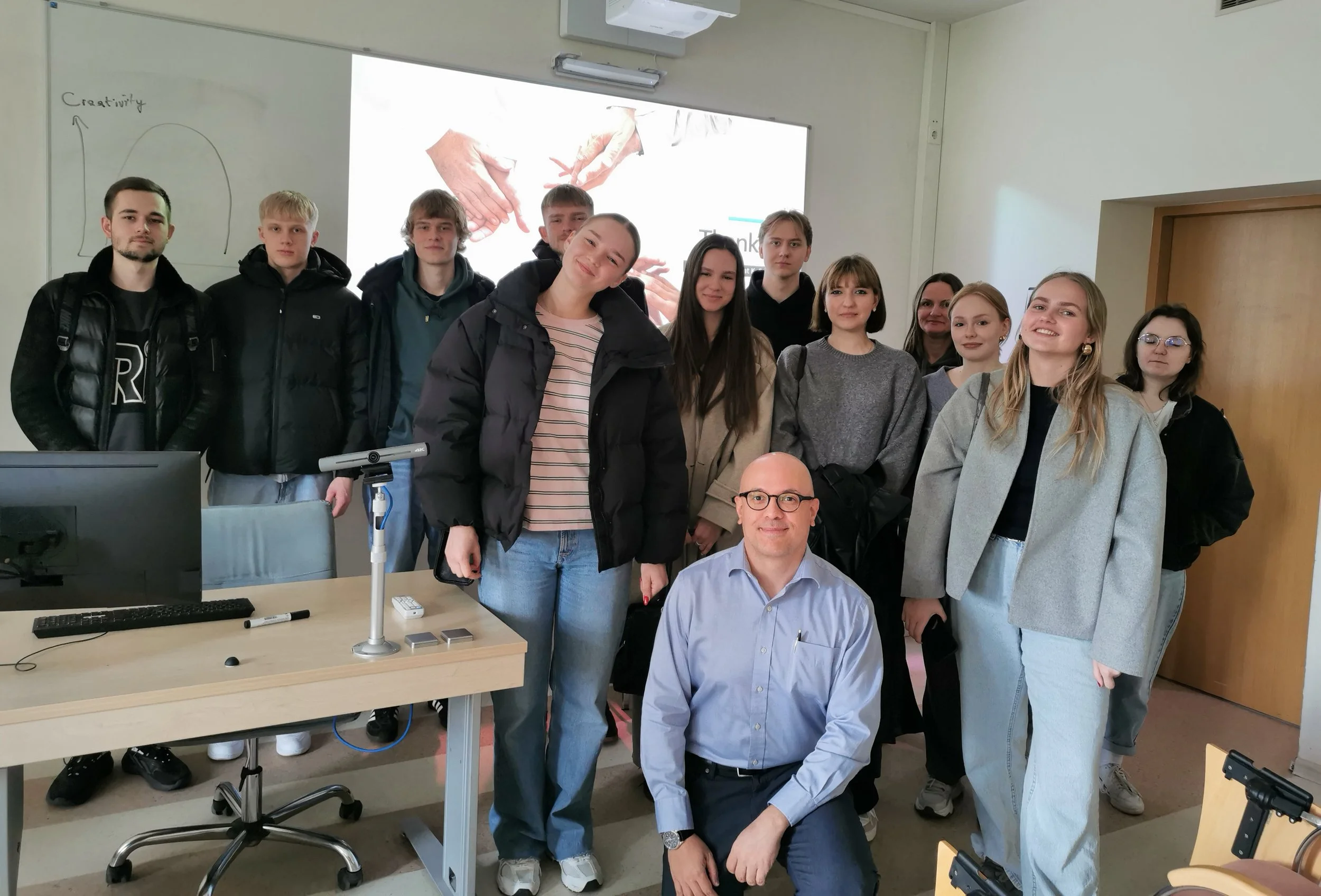External Resources on Generative AI in Higher Education
This repository gathers tools, policies, reports, and professional learning materials from institutions and organizations around the world. These materials are provided for informational purposes and to support broader awareness of emerging practices. Whether you're an educator, student, or academic leader, you can explore the content to help navigate AI’s evolving role in teaching, learning, and research.
Canada
HESA AI Observatory
This resource introduces HESA's Observatory on AI Policies in Canadian Post-Secondary Education, a platform designed to facilitate cross-institutional learning and collaboration. It aims to share policies and guidelines on AI, keeping institutions informed of the latest developments through weekly emails. The Observatory supports post-secondary institutions in developing comprehensive AI policies by providing a centralized resource for information and inspiration.
AI-Cademy Canada Summit for Post-Secondary Education (March 6-7, 2025) Calgary, AB
This report provides an overview of the HESA AI-Cademy Canada Summit, highlighting key sessions and presentations on AI integration in higher education. It covers topics such as AI policies, institutional frameworks, digital learning initiatives, and the role of AI in research and teaching. Attendees can gain insights from various institutions and experts on how AI is transforming post-secondary education in Canada.
Written by Julian L’Enfant, Studio for Teaching and Learning
CIFAR Destination AI
This resource from CIFAR explore the role of artificial intelligence (AI) in everyday life and its future potential. It features insights from leading researchers, a report on Canadians' attitudes towards AI, and details about an AI course designed to help individuals understand AI's opportunities and challenges. The content aims to educate and inform readers about AI's impact on society.
Navigating AI in Teaching and Learning: Values, Principles and Leading Practices (U15 Canada, September, 2024)
This page discusses the integration of generative AI tools in teaching and learning, highlighting the values, principles, and leading practices adopted by institutions. It addresses the benefits and challenges of AI, emphasizing the importance of ethical frameworks and academic integrity. The document aims to guide institutions in effectively incorporating AI technologies while maintaining trust and supporting shared values.
Publications
Generative Al and Education Digital Pedagogies, Teaching Innovation and Learning Design
B. Mairéad Pratschke (2024)
This volume addresses the knowledge gap around generative AI in education, highlighting its role in the evolving hybrid model of course design, delivery, and assessment. It advocates for a shift from learning as output to learning as a process, offering pedagogy-informed guidance on integrating AI as a collaborator in education. The book provides evidence-based advice and frameworks for effective teaching and learning with generative AI, helping educators and designers implement these practices.
Australia
Generative AI in higher education: Current practices and ways forward (January 2025)
Danny Liu, Professor of Educational Technologies, The University of Sydney, Australia
Simon Bates, Vice-Provost and Associate Vice President, Teaching and Learning, The University of British Columbia, Canada
This page presents a whitepaper from the Association of Pacific Rim Universities (APRU) on the current practices and future directions of generative AI in higher education. It explores the transformative impact of AI on teaching, learning, and research, offering a framework for action and collaboration among universities. The whitepaper emphasizes the urgency for institutions to adapt to AI advancements and provides practical recommendations for integrating AI responsibly and effectively.
Gen AI strategies for Australian higher education: Emerging practice (*TEQSA, November 2024)
This page outlines the Gen AI strategies for Australian higher education, providing a toolkit for institutions to integrate generative AI responsibly. It includes sections on processes, people, and practices, offering checklists, examples, and detailed guidance on risk assessment, student and staff support, assessment security, and communication strategies. The toolkit aims to help institutions navigate the challenges and opportunities of AI in education while maintaining academic integrity and enhancing learning outcomes.
Gen AI knowledge hub
This page serves as a knowledge hub for higher education providers, offering resources to navigate the challenges and opportunities presented by generative artificial intelligence (Gen AI). It includes *TEQSA-developed materials and good practice advice from various sources, covering topics like academic integrity, assessment reform, research, and student support. The hub is continuously updated to reflect the evolving landscape of Gen AI in education.
*TEQSA (Tertiary Education Quality and Standards Agency)
Europe
Council of Europe and Artificial Intelligence
This page highlights the Council of Europe's efforts to ensure that artificial intelligence (AI) respects human rights, democracy, and the rule of law. It features updates on recent activities, including Ghana joining as an observer and various high-level conferences and webinars focused on AI governance and impact assessments.
The EU Artificial Intelligence Act: Up-to-date developments and analyses of the EU AI Act
This page provides an in-depth look at the EU Artificial Intelligence Act, the first comprehensive AI regulation by a major regulator. It categorizes AI applications into three risk levels: unacceptable, high-risk, and largely unregulated. The page also offers tools like the AI Act Compliance Checker and detailed articles to help organizations understand and apply the Act's requirements.
UK
Russell Group principles on the use of generative AI tools in education
This page outlines the Russell Group principles for the ethical and responsible use of generative AI tools in education. It emphasizes the importance of AI literacy for students and staff, adapting teaching and assessment methods, and maintaining academic integrity. The principles also highlight the need for collaboration across educational sectors to share best practices and ensure equitable access to AI technologies.
AI Management Essentials tool (accessible) Published 6 November 2024
This page details the AI Management Essentials tool provided by the Department for Science, Innovation & Technology. It covers key aspects such as maintaining AI system records, developing AI policies, ensuring fairness, managing risks, and protecting data. The tool aims to help organizations effectively govern and manage their AI systems through structured processes and assessments.
US
Navigating Artificial Intelligence in Postsecondary Education: Building Capacity for the Road Ahead (January 2025)
This report from the Office of Education Technology offers a comprehensive guide on integrating artificial intelligence (AI) in postsecondary education, focusing on building institutional capacity and enhancing student success. It includes recommendations, resources, and insights to help faculty and administrators navigate AI's transformative potential while ensuring ethical and equitable practices.
AI and the Environment
ChangeNOW: The World Expo of Solutions for the Planet 2025
Replay highlights from the ChangeNOW 2025 conference, a global event held at the Grand Palais in Paris from 24 to 26 April 2025. The conference discussed AI’s environmental and social implications—including energy consumption, carbon emissions, and inclusivity—while highlighting how AI, when developed responsibly and with foresight, can become a powerful force for positive change.
Campus: Pros and cons of AI in higher education (Campus by Times Higher Education, February 20, 2025)
This podcast discusses the pros and cons of artificial intelligence (AI) in higher education. Three experts share practical advice and key considerations on AI's impact on teaching, governance, and the environment, offering reasons for both vigilance and optimism.
Shaolei Ren, an associate professor of electrical and computer engineering and a cooperating faculty member in the computer science and engineering department at the University of California, Riverside, whose article “Making AI less ‘thirsty’: uncovering and addressing the secret water footprint of AI models”, co-written with Pengfei Li and Jianyi Yang, also from UC Riverside, and Mohammad A. Islam of UT Arlington, has drawn attention to water consumption of AI data centres
José Bowen, an author and academic who co-wrote Teaching with AI: A Practical Guide to a New Era of Human Learning (Johns Hopkins University Press, 2024)
Shushma Patel, pro vice-chancellor for artificial intelligence at De Montfort University in the UK.
How much energy does ChatGPT use? (Josh You, February 2025)
This report revisits the energy consumption of ChatGPT queries, suggesting that previous estimates were significantly overestimated. It provides updated calculations showing that typical queries consume around 0.3 watt-hours, emphasizing the efficiency improvements in newer models and hardware.
Professional Development
Digitally Enhanced Education Webinars (University of Kent, UK)
This YouTube channel of the University of Kent's Digitally Enhanced Education webinars offers a variety of video resources focused on integrating AI into educational practices. It includes webinars on topics such as AI in assessment, developing critical thinking skills with generative AI, and inclusive teaching with technology. The content is designed to help educators enhance student engagement and improve teaching strategies using AI tools.
2025 AI in Higher Education Symposium Australia & New Zealand – Resources
These resources (15-minute presentations) detail the AI in Higher Education Symposium held on February 7, 2025, featuring educators from Australia and New Zealand. It showcases innovative uses of generative AI in teaching, learning, assessment, and curriculum, with recordings of various sessions available for viewing. The symposium aims to share best practices and creative approaches to integrating AI in higher education.
Destination AI: Introduction to Artificial Intelligence
This page introduces the free 6-hour course "Data Destination AI: Introduction to Artificial Intelligence," designed to demystify AI and explore its impact on society and the workplace. The course covers key concepts, machine learning, deep learning, and the stages of an AI project, aiming to provide a comprehensive understanding of AI's potential and risks.
AI in Education: Leveraging ChatGPT for Teaching (Coursera)
Instructor: Ethan Mollick, Ralph J. Roberts Distinguished Faculty Scholar and Associate Professor at the Wharton School of the University of Pennsylvania.
This course (4 hours) introduces a free course on leveraging ChatGPT for teaching, led by Ethan Mollick from the University of Pennsylvania. The course covers key concepts in generative AI, crafting effective AI prompts, and integrating AI into assignments while maintaining academic integrity. It aims to empower educators with practical strategies to enhance teaching and learning experiences using AI technologies.
One Useful Thing (Substack Blog)
This blog, authored by Prof. Ethan Mollick, explores the implications of AI on work, education, and life. It offers insights and resources for faculty members interested in understanding and integrating AI into their professional practices. The content is designed to help educators make informed decisions about AI's impact on their fields.
LinkedIn Learning
LinkedIn Learning offers a comprehensive collection of online training courses in Artificial Intelligence (AI) provided by LinkedIn Learning. It covers various aspects of AI, including programming, machine learning, computer vision, and natural language processing. The courses are designed to help learners develop their skills and knowledge in AI, with options ranging from foundational concepts to advanced applications.
Access LinkedIn Learning for free through Halifax Public Libraries.
Artificial Intelligence (Educause)
This page from EDUCAUSE provides an in-depth look at the use of artificial intelligence (AI) in higher education. It covers various applications of AI, such as personalized learning, virtual assistants, learning analytics, and grading. The content also addresses the challenges and opportunities of integrating AI on campus, offering resources and guidelines for educators and institutions.
Higher Education Generative AI Readiness Assessment (Educause)
This page introduces the Higher Education AI Readiness Assessment, developed by EDUCAUSE with support from Amazon Web Services. It is designed to help institutions evaluate their preparedness for strategic AI initiatives across five key areas: strategy, governance, technology, workforce, and teaching and learning. The assessment aims to facilitate discussion and guide institutions in understanding their current state and potential for AI integration.
Dimensions of AI Literacies (Opened Culture)
This resource outlines the Dimensions of AI Literacies, emphasizing the importance of developing a range of interconnected competencies to navigate AI in educational contexts. It highlights the need for educators, learners, and leaders to understand and critically evaluate AI's technical, ethical, cultural, and social implications. The content provides a flexible framework to help integrate AI into teaching and learning practices effectively.
ChatGPT for Education
This page, "ChatGPT for Education," explores how AI can enhance teaching and learning experiences. It features profiles of educators and students who use ChatGPT in innovative ways, such as mastering constructive disagreement, immersive language learning, and designing courses. The content provides practical tips and inspiration for integrating AI into educational practices.
OpenAI Academy
OpenAI Academy is dedicated to empowering individuals with the knowledge and skills to effectively harness artificial intelligence. It offers expert-led learning, community-driven projects, and opportunities for collaboration with peers and industry leaders. The Academy provides a mix of online and in-person events, facilitating a vibrant community where participants can gain actionable insights and drive innovation in their fields.
AI in Higher Education Resource Hub
This page from North Nord serves as a comprehensive hub for AI in higher education, offering insights into the latest developments, practical applications, and policy concerns. It covers topics such as personalized learning, AI tools for education, assessment innovations, and ethical considerations, aiming to support educators in navigating the evolving landscape of AI technologies.
Research
UNESCO Guidance for generative AI in education and research (2023)
This document provides UNESCO's first global guidance on generative AI (GenAI) in education and research. It outlines immediate actions, long-term policies, and human capacity development to ensure a human-centered approach to GenAI technologies. The guidance addresses ethical and policy issues, proposes regulatory steps, and explores creative uses of GenAI in educational and research activities.
AIEOU AI in Education (University of Oxford, UK)
This page introduces the AI in Education at Oxford University (AIEOU) interdisciplinary research hub, led by Dr. Sara Ratner and Professors Rebecca Williams and Elizabeth Wonnacott. AIEOU aims to promote a research-informed, ethical, human-centered approach to AI in education through collaboration and knowledge exchange, focusing on design, regulation, implementation, and impact.
For Faculty
UNESCO AI competency framework for teachers (August 2024)
This document presents the AI Competency Framework for Teachers, which outlines the essential knowledge, skills, and values educators need to effectively integrate AI into their teaching practices. It defines 15 competencies across five dimensions, aiming to guide national AI competency frameworks, inform teacher training programs, and support professional growth in the AI era.
Alchemy
This website offers a comprehensive suite of resources designed to empower educators with cost-effective, scalable solutions for creating high-impact, engaging learning experiences. It highlights Alchemy's AI-enabled design system, on-demand learning design experts, and student success services aimed at reducing costs, accelerating program development, and improving student retention.
AI and ChatGPT Resources for Higher Education (from Alchemy)
This resource offers a comprehensive repository of resources for faculty, focusing on the integration of AI and ChatGPT in higher education. It includes webinar series, tools, tips, and strategies to enhance teaching, course design, and assessments using AI technologies. Faculty members can explore various articles and shared resources to stay updated and effectively incorporate AI into their academic work.
Assessment
Program level assessment design and the two-lane approach (Adam Bridgeman, Danny Liu and Ruth Weeks)
This page offers a comprehensive repository of resources for faculty, focusing on educational innovation and assessment design in the age of generative AI. It includes detailed explanations of program-level assessment, workshops, events, and practical approaches to integrating AI into teaching and learning. Faculty can explore various programs and services aimed at enhancing educational practices and ensuring academic integrity.
THE AI ASSESSMENT SCALE REVISITED: A FRAMEWORK FOR EDUCATIONAL ASSESSMENT (December 2024)
Mike Perkins, British University Vietnam
Jasper Roe, James Cook University Singapore
Leon Furze, Deakin University, Australia
This updated paper revisits the AI Assessment Scale (AIAS), presenting an updated framework for educational assessment in the context of Generative Artificial Intelligence (GenAI). It aims to facilitate dialogue between educators and students about GenAI use and support the redesign of assessments to accommodate advancing AI capabilities. The revised AIAS offers a structured yet flexible approach, adaptable across various educational contexts, and includes new visual guides and refined levels of AI integration.
For Students
UNESCO AI competency framework for students (August 2024)
This document offers a comprehensive repository of resources for faculty, focusing on integrating artificial intelligence (AI) learning objectives into school curricula. It highlights the UNESCO AI Competency Framework for Students, detailing 12 competencies across four dimensions and three progression levels, aimed at preparing students to be responsible and creative citizens in the AI era.
AI in Education (The University of Sydney, Australia)
This website is a resource hub for students, created to help them use generative AI effectively and responsibly in their university studies. It offers guidance on various topics, including writing prompts, assessment strategies, and applying AI in different disciplines. Students can navigate through modules to find tools and tips for enhancing their learning and academic performance using AI technologies.
Working with Artificial Intelligence (The University of Adelaide, Australia)
This page outlines the University of Adelaide's guidelines for using artificial intelligence (AI) responsibly in academic work. It emphasizes the importance of academic integrity, detailing behaviors that breach the university's policy, such as submitting AI-generated work without proper acknowledgment. The page also provides resources and guidelines to help students understand how to use AI ethically and transparently in their studies.
Artificial intelligence: advice for students (*TEQSA)
This page offers advice for students on using generative AI, such as ChatGPT, in their studies. It emphasizes the importance of understanding university policies to avoid academic misconduct and provides resources on ethical AI usage. The page also includes links to additional materials and translated versions to help students navigate AI tools responsibly.
*TEQSA (Tertiary Education Quality and Standards Agency)






























